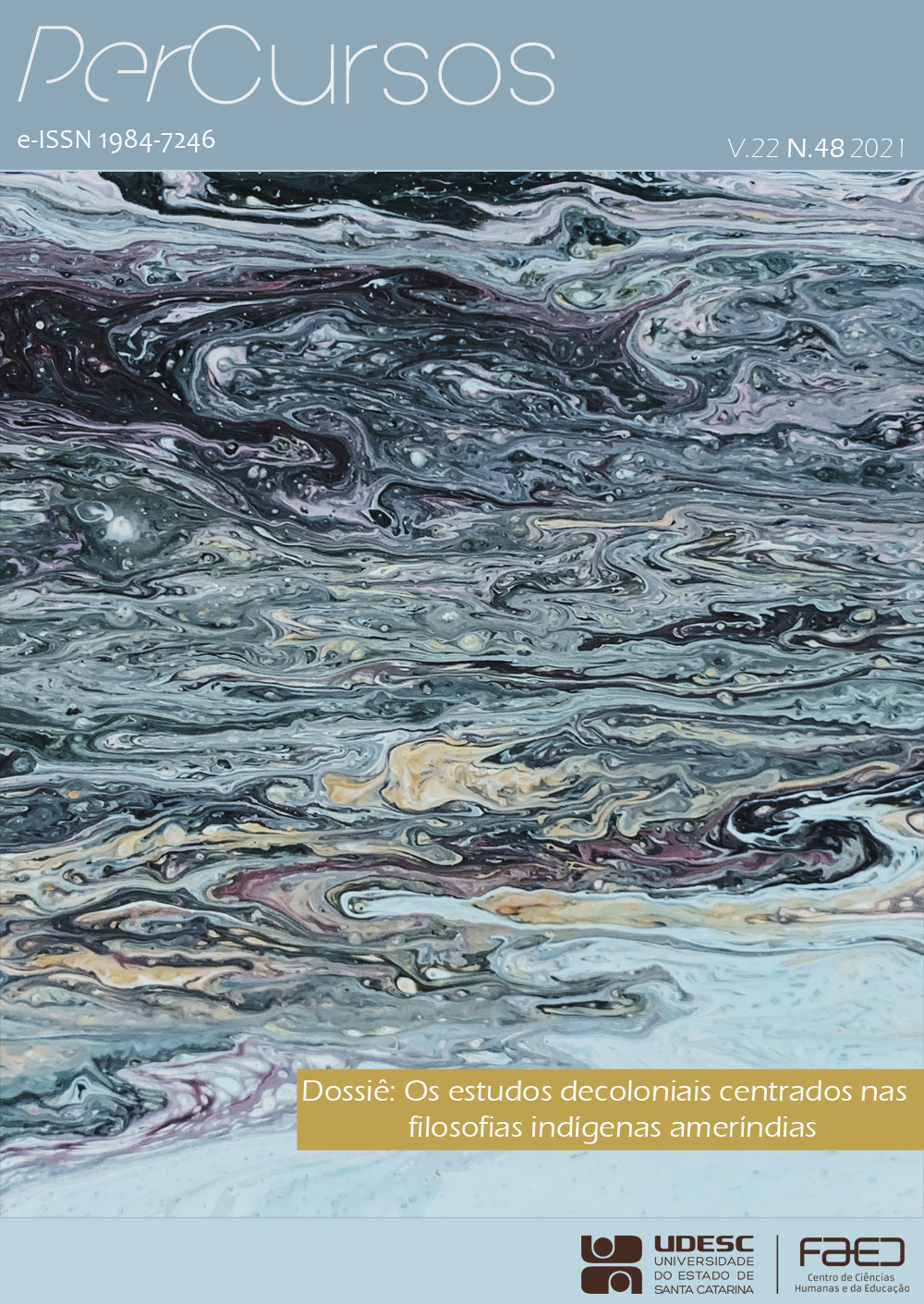Temporal milestone, Supreme Federal Court and indigenous people rights: an return announced
DOI:
https://doi.org/10.5965/1984724622482021399Keywords:
Indigenous peoples, Temporal Milestone, Tradicional landsAbstract
The present paper seeks to demonstrate the thesis of the temporal milestone as a deconstruction of the new paradigm regarding indigenous peoples present in the 1988 Federal Constitution. Until the 1988 Constitution, the indigenous peoples’ right to be on their lands was, in some way, recognized but not the right to remain indigenous, therefore, integration was seen as necessary. In 1988, this paradigm changed and integration was not included in the law. The rights to be and remain as indigenous peoples are recognized, in addition to the primary law to the lands they occupy recognition. This recognition happened mainly due to the struggle of the indigenous peoples that have resisted for 520 years. However, the Supreme Federal Court created the thesis of the temporal milestone that implies that indigenous people are only entitled to their territory if they were there on October 5th 1988. Thereby, the country's largest court disregards indigenous peoples' struggle and the violence that expelled them from their lands so many times. Therefore, the main objective is to critically analyze the thesis of the temporal milestone and demonstrate that it is contrary to the constitution itself and disregards the struggle and resistance of the indigenous peoples. For this, a historical analysis of the indigenous peoples’ rights is made, the case is presented highlighting the votes of the Ministers and then, we presented arguments that demonstrate that the thesis of the temporal milestone means, to a certain extent, the return of the integration ideal and the mitigation of the indigenous peoples’ rights.
Downloads
References
AMADO, Luiz Henrique Eloy. O direito originário dos povos indígenas. Site Apib, [s.l.], 2020. Disponível em: https://apiboficial.org/2020/10/20/o-direito-originario-dos-povos-indigenas/. Acesso em: 26 nov. 2020.
ARTICULAÇÃO DOS POVOS INDÍGENAS DO BRASIL. Nossa história não começa em 1988! Marco temporal não! Site Apib, [s.l.], 2017. Disponível em: https://apiboficial.org/2017/08/03/nossa-historia-nao-comeca-em-1988-marco-temporal-nao/. Acesso em: 26 nov. 2020.
BRASIL. Constituição da República Federativa do Brasil. Promulgada em 5 de outubro de 1988. Brasília, DF: Presidência da República, 1988. Disponível em: http://www.planalto.gov.br/ccivil_03/constituicao/constituicao.htm. Acesso em: 23 nov. 2020.
BRASIL. Decreto nº 58.824 de 14 de julho de 1966. Promulga a Convenção nº 107 sôbre as populações indígenas e tribais. Brasília, DF: Presidência da República, 1966. Disponível em: http://www.planalto.gov.br/ccivil_03/Atos/decretos/1966/D58824.html. Acesso em: 28 abr. 2021.
BRASIL. Leiº 6.001 de 19 de dezembro de 1973. Dispõe sobre o Estatuto do Índio. Brasília, DF: Presidência da República, 1973. Disponível em: http://www.planalto.gov.br/ccivil_03/leis/l6001.htm. Acesso em 28 abr. 2021.
BRASIL. Supremo Tribunal Federal. Petição n. 3.388; Ementa: Ação Popular. Liminar Indeferida. Demarcação Da Reserva Indígena Raposa Serra Do Sol. Homologação. Portaria Nº 534/2005, Do Ministério Da Justiça. [...] Agravo regimental desprovido. Relator: Min. CARLOS BRITTO, 2009, Tribunal Pleno. Disponível em: http://redir.stf.jus.br/paginadorpub/paginador.jsp?docTP=AC&docID=630133. Acesso em: 18 nov. 2020.
COELHO DOS SANTOS, Sílvio. Direitos Humanos e o direito dos povos indígenas no Brasil. Ilha R. Antr., Florianópolis: UFSC, p. 73-82, 2005.
CONSELHO INDIGENISTA MISSIONÁRIO. Relatório da violência contra os povos indígenas no brasil: dados de 2019. Brasília: CIMI, 2020. Disponível em: https://cimi.org.br/observatorio-da-violencia/. Acesso em: 18 nov. 2020.
GUIMARAES, Alberto Passos. Quatro séculos de latifúndio. 3. ed. Rio de Janeiro: Paz e Terra, 1968.
INSTITUTO SOCIOAMBIENTAL. Terras Indígenas no Brasil. [S.l.: s.n], 2020. Disponível em: https://terrasindigenas.org.br/. Acesso em: 19 nov. 2020.
INSTITUTO BRASILEIRO DE GEOGRAFIA E ESTATÍSTICA. Censo 2010: população indígena é de 896,9 mim, tem 305 etnias e fala 274 idiomas. [Rio de Janeiro: IBGE, 2010]. Disponível em: https://censo2010.ibge.gov.br/noticias-censo?busca=1&id=3&idnoticia=2194&t=censo-2010-poblacao-indigena-896-9-mil-tem-305-etnias-fala-274&view=noticia . Acesso em: 28 out. 2020.
MORAES, José Augusto Santos. Violência e corrupção no SPI: a situação dos indígenas no sul do Mato Grosso, uma abordagem a partir do Relatório Figueiredo. (1960-1967). In: SIMPOSIO NACIONAL DE HISTÓRIA, 28., 2015, Florianópolis. Anais eletrônicos [...]. Florianópolis: [s.n.], 2015. p. 1-15.
PORTUGUAL. Carta de Lei de 10 de setembro de 1611. [S.l.: s.n.], 1611. Disponível em: http://transfontes.blogspot.com/2009/12/lei-de-10-de-setembro-de-1611.html. Acesso em: 18 nov. 2020.
RIBEIRO, Darcy. Os índios e a civilização: a integração das populações indígenas no Brasil moderno. 7 ed. São Paulo: Globo. 2017
SILVA, José Afonso. Curso de direito constitucional positivo. 34 ed. São Paulo: Malheiros, 2011.
SILVA, José Afonso. Parecer. In: CARNEIRO DA CUNHA, Manuela; BARBOSA, Samuel (orgs.). Direitos dos povos indígenas em disputa. São Paulo: Editora Unesp, 2018. p. 17-42.
SOUZA FILHO, Carlos Frederico Marés. A essência socioambiental do constitucionalismo latino-americano. Revista da Faculdade de Direito da UFG, Goiânia, v. 41, n.1, p.197-215, jan./jun., 2017. DOI: https://doi.org/10.5216/rfd.v41i1.46887
SOUZA FILHO, Carlos Frederico Marés. Portaria 303 da AGU: apenas uma maldade? Revista de Direitos Fundamentais e Democracia, Curitiba, v. 13, n. 13, p. 33-41, janeiro/junho de 2013.
SOUZA FILHO, Carlos Frederico Marés. Marco temporal e direitos coletivos. In: CARNEIRO DA CUNHA, Manuela; BARBOSA, Samuel (orgs.). Direitos dos povos indígenas em disputa. São Paulo: Editora Unesp. p. 75-100, 2018.
SOUZA FILHO, Carlos Frederico Marés. O renascer dos povos indígenas para o direito. 1 ed. Curitiba: Juruá, 2012.
Downloads
Published
How to Cite
Issue
Section
License
Copyright (c) 2021 PerCursos

This work is licensed under a Creative Commons Attribution-NonCommercial-NoDerivatives 4.0 International License.


